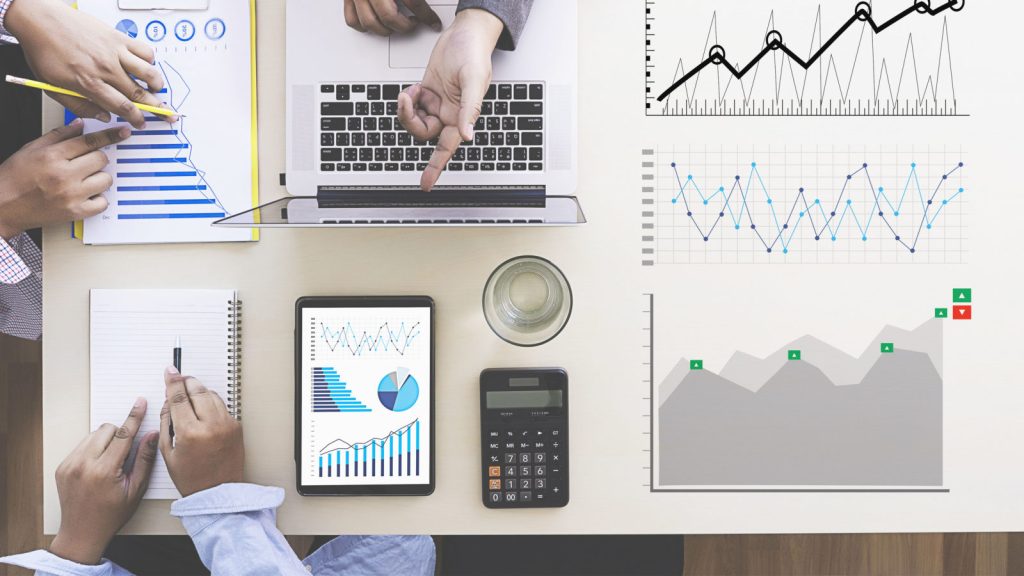Imagine steering a ship through turbulent waters with no compass, no maps, and no stars to guide you. Sounds perilous, right? This is what running a business without forecasting can feel like. While forecasts may not be 100% accurate, they are invaluable tools that help business leaders navigate through economic tides and market fluctuations. In this compelling read, we’ll explore what forecasting is, discuss why forecasting is important, and delve deep into the nuances of business forecast systems. So, tighten your seat belts as we voyage through the sea of business intricacies, spotlighting the benefits of forecasting.
The Underlying Fundamentals: What Is Forecasting?
Forecasting is a lot more than crystal balls and speculative guesswork. It’s a structured approach that employs data, statistics, and analytics to predict future trends, demand, and outcomes. Think of it as the weather radar of your business. It tells you what to expect, helping you make informed decisions. What is business forecasting, then? Well, it’s applying these predictive methods to your trade—be it in sales, finance, or operations.
These forecasts come in different shapes and sizes. While some are short-term, focusing on the next quarter, others might be long-term, peering into the years ahead. It’s not just about numbers either. Qualitative forecasting can gauge consumer behavior, identify market opportunities, and reveal weaknesses in your business strategy. So, the next time you come across that ominous word, ‘forecast,’ don’t shy away. It could be your ticket to long-term stability and growth.
You may ask, what makes a good forecast? Forecast accuracy is crucial. A forecast is only as useful as its accuracy. To improve this, one should use sophisticated business forecast systems, backed up by rigorous data analysis, robust modeling techniques, and human expertise. Now that you’re familiar with what forecasting involves, let’s dive into why it’s such an asset to your business.

The Relevance Quotient: Why Is Forecasting Important?
Imagine launching a new product without gauging the demand. It’s like throwing a party without sending out invites—you don’t know who’ll show up or if anyone will. This is why forecasting is important in business. Accurate forecasting equips you with the knowledge you need to make smart decisions, whether that’s ramping up production, scaling back, or entering new markets.
Not convinced? Think of it this way. Without reliable forecasts, businesses would have to rely on instinct, luck, or broad generalizations, leading to inefficiencies and lost opportunities. It’s not just about avoiding pitfalls; it’s also about capitalizing on opportunities. Forecasting helps you understand market trends, customer preferences, and even the impact of external factors like economic downturns or policy changes. This is the essence of the importance of business forecasting.
Operational Excellence Through Business Forecast Systems
With technological advancements, business forecast systems have evolved to become more accurate, user-friendly, and comprehensive. These aren’t just spreadsheet programs, but powerful analytical tools that can break down complex data sets into actionable insights. They bring together historical data, current market trends, and advanced algorithms to offer forecasts that are as accurate as they can be.
The benefits of forecasting aren’t limited to top-tier management. On the contrary, almost every department within an organization can take advantage of these systems. Marketing teams can plan campaigns more efficiently, production units can manage inventory levels, and human resources can forecast hiring needs. In a nutshell, a robust forecast system amplifies operational excellence.
Why is forecast accuracy important in these systems? The answer is simple. The more accurate the forecast, the more reliable the decisions made based on it. Inaccurate forecasts can lead to costly mistakes, such as overstocking, underproduction, or missed market opportunities. An effective forecast system is not a one-time setup, but an ongoing process that adapts and learns from new data, ensuring its predictions become more precise over time.
The Bigger Picture: Benefits and Significance
So, why is forecasting important? Because it influences every sphere of a business. It’s a yardstick for performance, a blueprint for planning, and a roadmap for growth. Companies with good forecasting abilities tend to be more agile, adapting easily to market changes or shifts in demand. This adaptability is vital in today’s fast-paced business environment.
The benefits of forecasting are manifold, but they all boil down to one thing: competitive advantage. A business that can accurately foresee future trends has a leg up on its rivals. Whether it’s deciding to diversify product lines, penetrate new markets, or adjust pricing strategies, forecasting equips you with the data you need to stay ahead of the curve.
Conclusion
Forecasting is not just a part of the business; it’s at the heart of decision-making, strategy, and risk management. Understanding what is forecasting, recognizing why forecasting is important, and implementing effective business forecast systems can spell the difference between a business that merely survives and one that thrives. To navigate the ever-changing business landscape, embracing the importance of business forecasting is not an option, but a necessity. And for those who master it, the rewards are not just beneficial—they’re transformative.